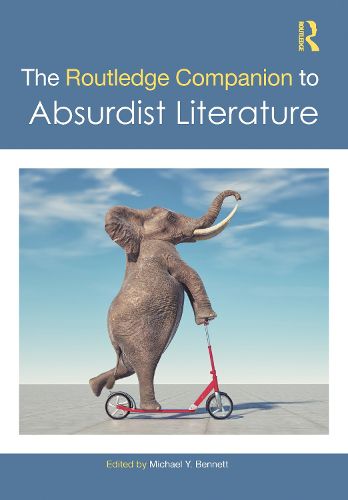Readings Newsletter
Become a Readings Member to make your shopping experience even easier.
Sign in or sign up for free!
You’re not far away from qualifying for FREE standard shipping within Australia
You’ve qualified for FREE standard shipping within Australia
The cart is loading…






The Routledge Companion to Absurdist Literature is the first authoritative and definitive edited collection on absurdist literature. As a field-defining volume, the editor and the contributors are world leaders in this ever-exciting genre that includes some of the most important and influential writers of the twentieth century, including Samuel Beckett, Harold Pinter, Edward Albee, Eugene Ionesco, Jean Genet, and Albert Camus. Ever puzzling and always refusing to be pinned down, this book does not attempt to define absurdist literature, but attempts to examine its major and minor players. As such, the field is indirectly defined by examining its constituent writers. Not only investigating the so-called "Theatre of the Absurd," this volume wades deeply into absurdist fiction and absurdist poetry, expanding much of our previous sense of what constitutes absurdist literature. Furthermore, long overdue, approximately one-third of the book is devoted to marginalized writers: black, Latin/x, female, LGBTQ+, and non-Western voices.
$9.00 standard shipping within Australia
FREE standard shipping within Australia for orders over $100.00
Express & International shipping calculated at checkout
The Routledge Companion to Absurdist Literature is the first authoritative and definitive edited collection on absurdist literature. As a field-defining volume, the editor and the contributors are world leaders in this ever-exciting genre that includes some of the most important and influential writers of the twentieth century, including Samuel Beckett, Harold Pinter, Edward Albee, Eugene Ionesco, Jean Genet, and Albert Camus. Ever puzzling and always refusing to be pinned down, this book does not attempt to define absurdist literature, but attempts to examine its major and minor players. As such, the field is indirectly defined by examining its constituent writers. Not only investigating the so-called "Theatre of the Absurd," this volume wades deeply into absurdist fiction and absurdist poetry, expanding much of our previous sense of what constitutes absurdist literature. Furthermore, long overdue, approximately one-third of the book is devoted to marginalized writers: black, Latin/x, female, LGBTQ+, and non-Western voices.